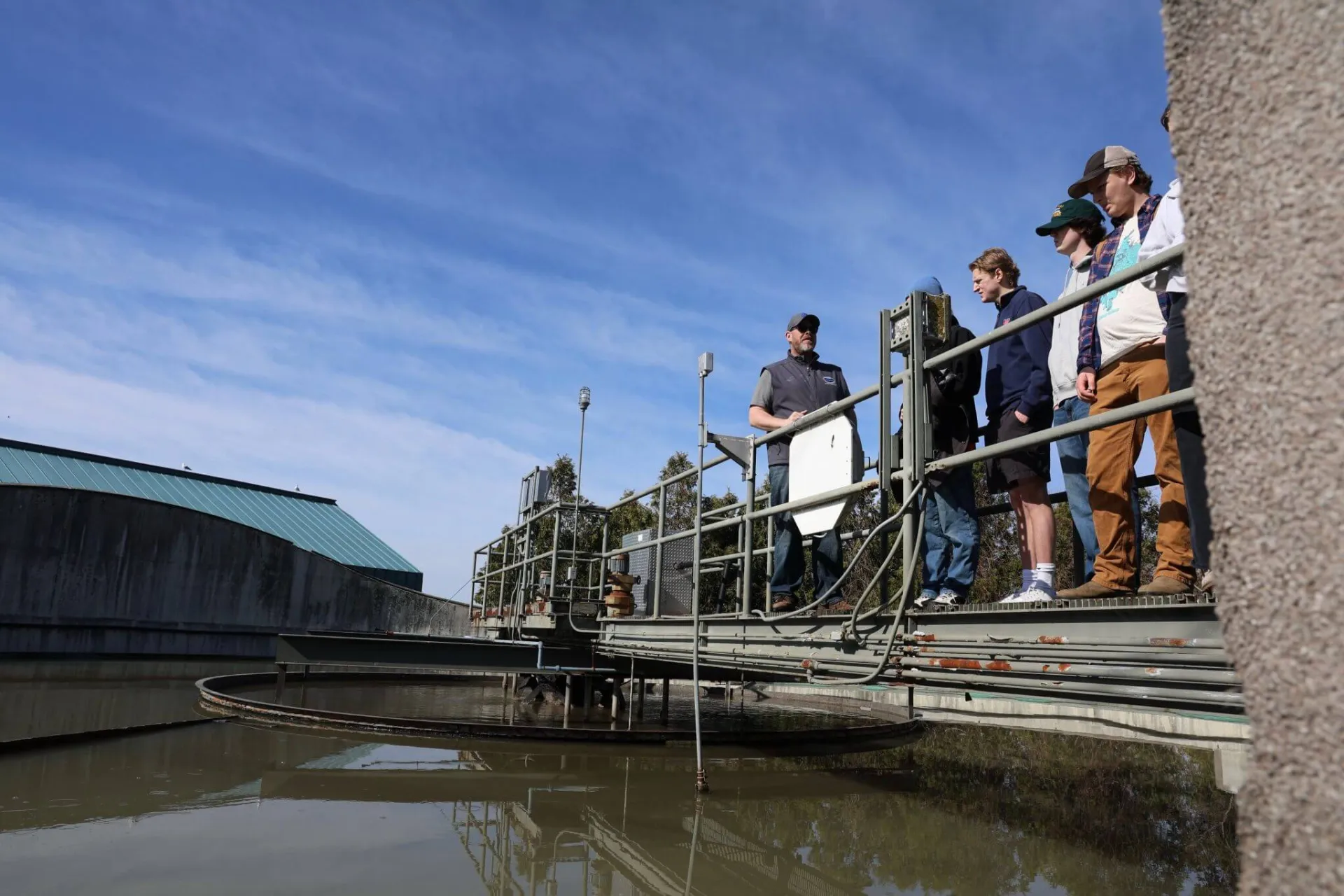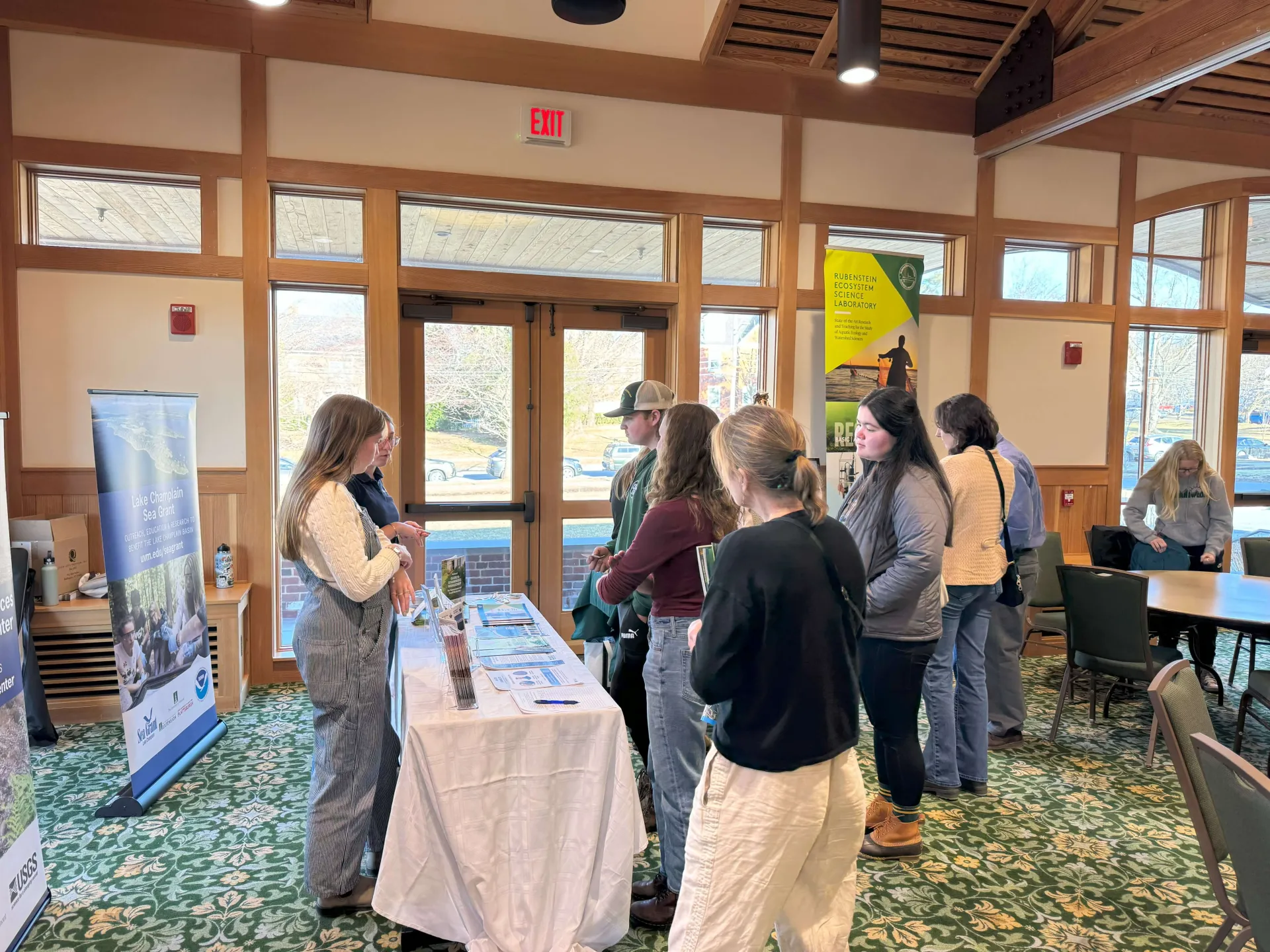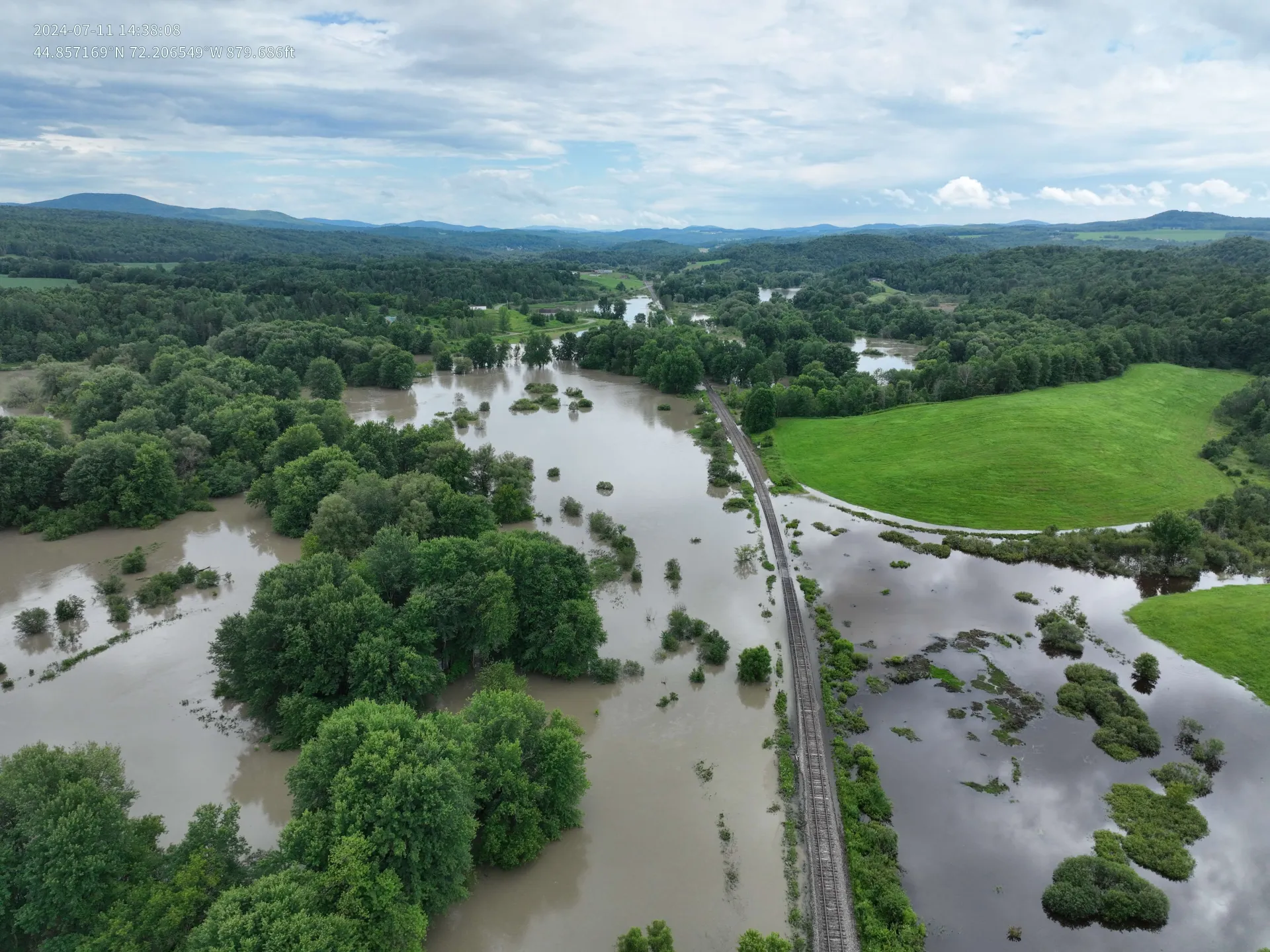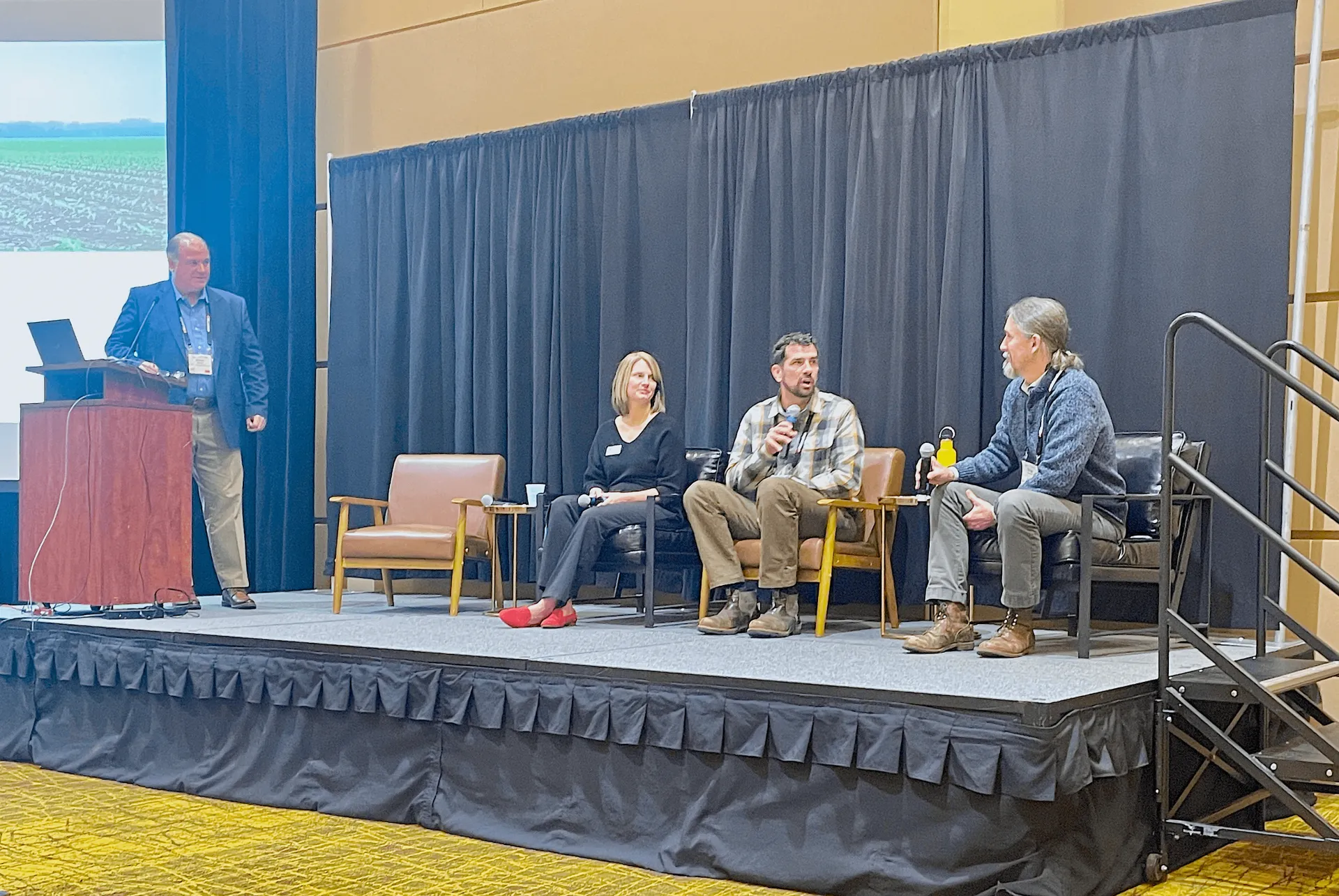Safe drinking water and wastewater treatment are critical services, and it is important that communities have continued access to reliable water amenities. Access to clean drinking water and proper wastewater treatment is vital for public health, environmental protection, housing, and economic development.
However, in rural communities, an ongoing workforce shortage threatens the ability to provide these essential services, as well-trained, experienced operators are vital to these systems’ operations.
The Water Resources Institute (WRI) and the Vermont Rural Water Association (VRWA) have been awarded a capacity partnership grant from the UVM Leahy Institute for Rural Partnerships. This grant will implement targeted workforce development initiatives by attracting a younger and more diverse workforce through educational experiences and VRWA’s Apprenticeship Program, and by better understanding incentives for workers to enter the industry.
The inspiration for the WRI and VRWA connection arose from conversations between VRWA and John Lens, a Senior Lecturer in UVM’s Department of Civil and Environmental Engineering, regarding water workforce development in Vermont. Typical of small community drinking water systems in Vermont, the Randolph Center water system, where John was chair of the Prudential Committee, was acutely challenged with no water operations firms having capacity to take on their operations workload. Lens learned that VRWA, the State of Vermont Agency of Natural Resources, and communities were collaborating on strategies to address that workforce shortage and became involved in that group. A conversation with Brad Roy (UVM RSENR ‘16), of VRWA, sparked the idea that UVM students from many academic majors would very likely be interested in water operations careers, if they knew about them, with the cross-disciplinary WRI being an ideal link between students and water related career exploration.
WRI’s Director, Dr. Beverley Wemple, has been the driving force bringing Lens’s idea to action, solidifying the collaboration between VRWA and WRI. Her vision is helping VRWA understand how to leverage learning opportunities for students and mesh them with experiences in the field. She put out calls for her colleagues to get involved in this initiative, leading to three courses participating in this partnership during UVM’s spring semester: Cheryl Morse’s Restoration Cultures, Laura Webb’s Earth Materials, and Kennedy Brown and Arne Bomblies’ Hydraulics. John Lens’s Capstone Design was not directly connected to the partnership, but five capstone projects addressed water resources, emphasizing the desire to engage in this space.
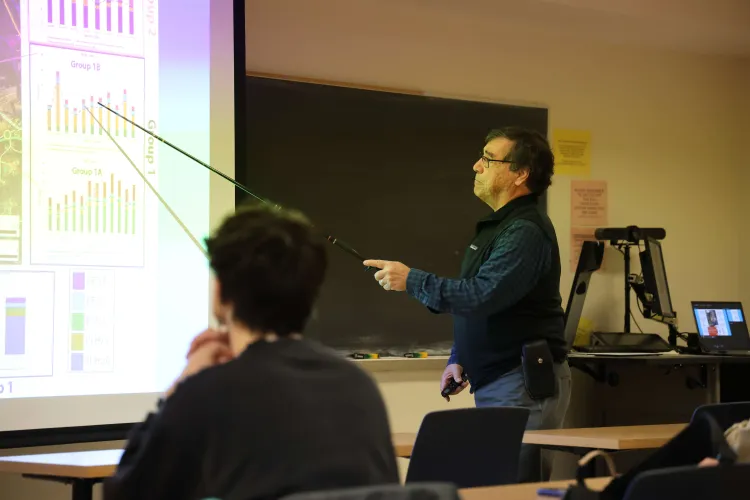
The students gained a better understanding of water operation careers through a trip to Hinesburg's water treatment facility, the Burlington Wastewater Facility, and through a lecture with Geologist Jonathan Kim from the Vermont Geological Survey (VGS).
During the trips, students were introduced to essential services provided by drinking water and wastewater professionals and learned how their interests are transferable to water workforce opportunities. The students were able to witness textbook concepts in action at these plants, as they learned about the treatment process, fluid dynamics, aeration, and more. In the classroom, Dr. Kim’s presentation highlighted a multi-year project that investigated the Per and Poly Fluoro Alkyl Substance (PFAS) contamination of groundwater in bedrock aquifer, underscoring the importance of a comprehensive geoscience curriculum for real-world applications and careers. With the rise of emerging contaminants like PFAS, it is crucial that skilled water operators are available to protect communities from exposure.
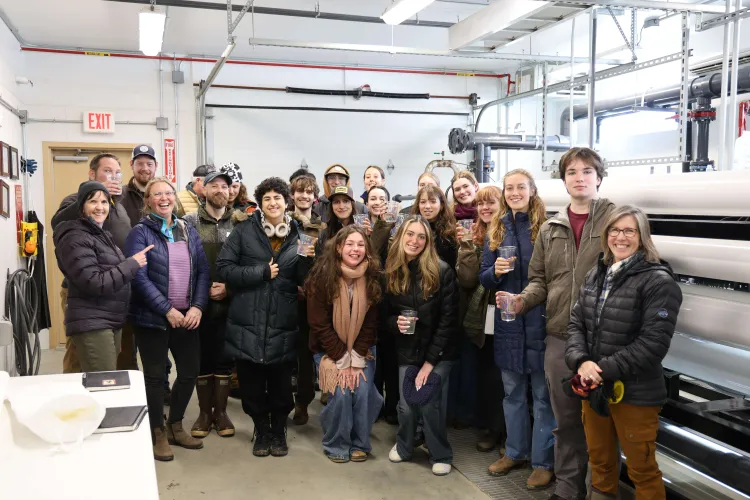
“Vermont Rural Water’s partnership with UVM’s Water Resources Institute has been a powerful experience in our short time working together – made possible with funding from the Leahy Institute,” says Allison Smith, the Training Administrator at VRWA. “Dr. Wemple and Dr. Lens have been visionaries in helping us conceive opportunities that would be beneficial to students, while offering us pathways to educate young people on the importance of rural water systems in communities. Even more exciting is our hope that these experiences visiting and working with water systems open pathways to fulfilling and vital careers in the water industry for students.”
These collaborations and ongoing educational experiences are not only giving UVM students the opportunity to understand how their studies can transfer to professional pathways and exposing them to the water sector’s challenges, but they are developing intercultural knowledge and skills and building community. By focusing on rural water, they are being introduced to essential services provided by drinking water and wastewater professionals, revealing the intersection with public health and environmental resources. This hands-on learning experience provides an entry point into a rewarding and critical career.
Learn more about the Water Resources Workforce Development program developed in partnership with Vermont Rural Water Association and UVM Leahy Institute for Rural Partnerships that's creating space for these collaborations: Water Resources Workforce Development | Water Resources Institute | The University of Vermont.
